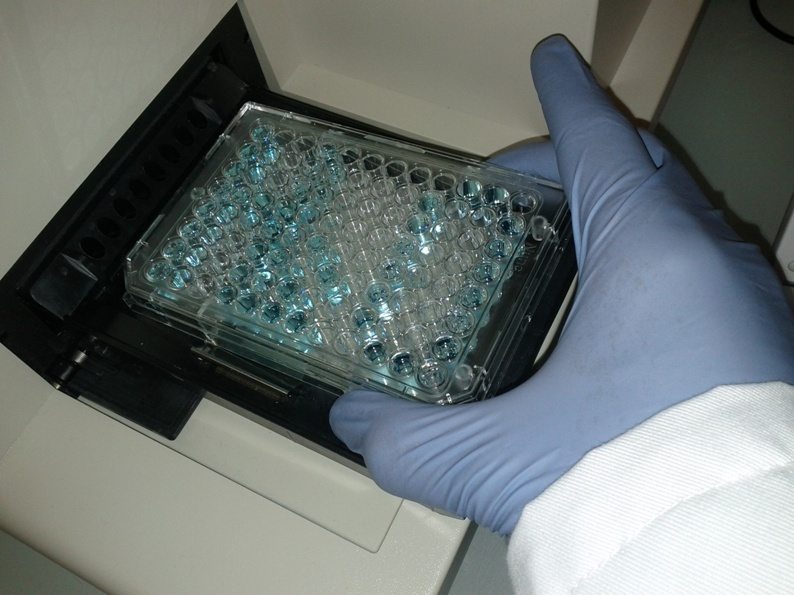 New research conducted by the Perelman School of Medicine at the University of Pennsylvania and released in the Journal of Neurotrauma suggests that elevated blood levels of calpain-cleaved αII-spectrin N-terminal fragment (SNTF), a protein that acts as a neurodegenerative biomarker, can predict the severity of a concussion when measured shortly after a sports-related injury.
New research conducted by the Perelman School of Medicine at the University of Pennsylvania and released in the Journal of Neurotrauma suggests that elevated blood levels of calpain-cleaved αII-spectrin N-terminal fragment (SNTF), a protein that acts as a neurodegenerative biomarker, can predict the severity of a concussion when measured shortly after a sports-related injury.
SNTF is present but mostly undetectable in healthy human brains. When nerve cells are damaged and begin to die, however, the body begins producing the protein in greater quantities. Moderate to severe concussions cause SNTF to gather in vulnerable long axon tracts of the brain. Consequently, elevated levels of the protein in the blood can indicate axonal injury, and the volume of SNTF may also correlate with the severity of injury.
This same group at the University of Pennsylvania has conducted previous research related to SNTF and TBI and found similar results in patients admitted to the emergency room on the same day they suffered a concussion. Lead author and Research Professor of Neurosurgery Robert Siman, PhD, believes that the findings could influence the safety of athletes, as well as policy related to athletes, in the future. “We extended this biomarker research to the domain of professional sports to test its merit as an objective and rapid way to determine players’ severity of brain injury,” says Siman. “This blood test may aid neurobiologically-informed decisions on suitability for return to play following a sports-related concussion.”
The study was administered in conjunction with academic researchers from the Sahgrenska Academy at University of Gothenburg, Sweden. Two hundred eighty-eight Swedish hockey players were enrolled in the study, and 28 of them suffered a concussion during the first half of the 2012-2013 season. These players were evaluated daily to test for concussion symptoms and to receive blood draws. Of these players, eight were symptom-free within several days of the injury, but 20 had to be withheld from competition for six or more days due to their persistent post-concussion symptoms. Additionally, 45 players were tested during the preseason, and 17 of those were evaluated both before and after a concussion-free exhibition.
Compared with those who did not suffer a concussion or who only suffered mild concussion, those players who experienced persistent post-concussion symptoms registered elevated levels of SNTF from one hour to 144 hours after the incident.
In conclusion, Siman reiterated his belief that SNTF and the severity of TBI symptoms are closely related. “High blood levels of SNTF appear to identify acute brain damage that corresponds with persisting symptoms after concussion,” he said. “These observations lend further support to the growing awareness that concussion is not trivial, since it can induce permanent brain damage in some individuals.”
If you or a loved one has suffered TBI as a result of someone else’s negligence or wrongdoing, the personal injury attorneys at Crosley Law Firm are here to assist you in every way possible. We can direct you to the most experienced and respected medical resources nationwide to receive an accurate diagnosis and develop a treatment plan. We can also help you seek compensation. Contact us at (877) 535-4529 or visit us online to tell us more about your case and to schedule a free consultation.
Reference:
Perelman School of Medicine at the University of Pennsylvania. (2014, November 25). Protein elevated in blood predicts post-concussion symptom severity in professional athletes. ScienceDaily. Retrieved January 29, 2015 from www.sciencedaily.com/releases/2014/11/141125180315.htm








